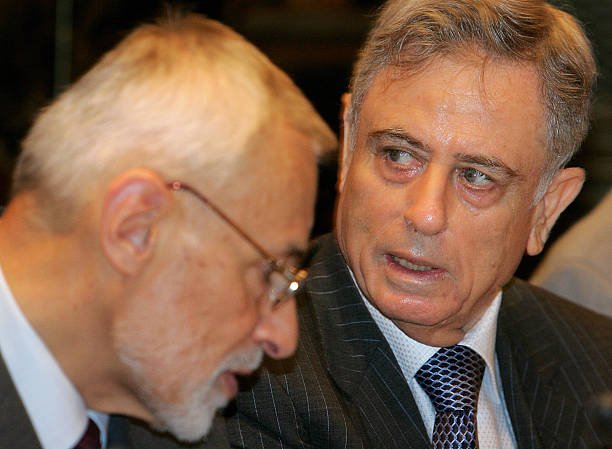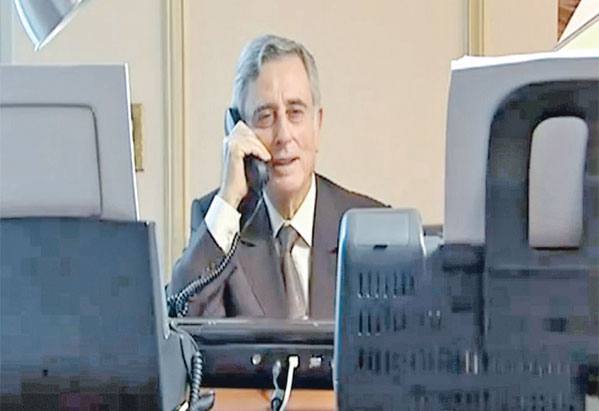The general observer of the Syrian Muslim Brotherhood, Ali Sadr al-Din al-Bayanouni, and Abdul Halim Khaddam, the former Syrian Vice President, agreed to intensify pressure on the Syrian regime and contact the opposition parties to agree on a “common vision to save Syria.”
The two men agreed in a statement that culminated in their meeting in Brussels yesterday, Wednesday, on the necessity of “working with all national forces and holding meetings with them, including the parties to the Damascus Declaration, to unite them and reach a formula for joint action to save Syria from the ordeal it is suffering from.”
The “Damascus Declaration” was issued by a group of opposition parties and figures in October and was supported by the Muslim Brotherhood. The declaration called for “radical and democratic change” to the existing regime.
The statement also held the Syrian regime “responsible for everything that befell Syria and what could befall it,” but stressed the rejection of external interference in the internal affairs of Syria and that “change is the responsibility of the Syrians to get rid of the corrupt and tyrannical regime and establish a democratic regime.”
Meeting and backgrounds
Najib Al-Ghadhban, the Syrian oppositionist and professor of political science at the University of Arkansas, believed that what accelerated the meeting between the Muslim Brotherhood and one of the symbols of the regime that persecuted them was the acceleration of developments on the Syrian scene, including the “Syrian escalation” in Lebanon, and the desire to know the impact of Khaddam’s joining the opposition on parties within the regime. Syrian
By meeting with Khaddam, the opposition wanted to inform parties within the Syrian regime that had not been involved in any mistakes that they could join the opposition without fear of reprisal.
Al-Ghadhban said in a call with Al-Jazeera Net that the opposition wanted to meet with Khaddam to inform parties within the Syrian regime “that were not involved in mistakes” that they could join the opposition without fear of reprisal, especially since Khaddam had not yet offered the apology that she required to work with him, after she had linked Dealing with figures of authority by not being involved in human rights violations and corruption, which is the same thing that has prevented her from meeting Rifaat al-Assad until now.
Cache and files
Al-Ghadhban added that the opposition is counting on Khaddam for two things: that he represents a certain symbolism, knowing the secrets of the Syrian regime, to elevate the responsibilities he held before he was marginalized in the last five years, and then the role that his international connections play as an “acceptable figure” with strong relations with France and the Kingdom of Saudi Arabia, which... It makes it present an image that other factions cannot provide
The Syrian opposition member also considered that there are two currents within the American administration that are struggling over the way to deal with the Muslim Brotherhood in Syria, without the conflict being resolved for either of them. The first sees the Brotherhood as a given that must be dealt with pragmatically, while the second refuses to deal with them at all, “because of what this might entail.” Dealing with unpleasant surprises strengthened their position, especially after the victory of the Islamic Resistance Movement in the Palestinian elections.”


